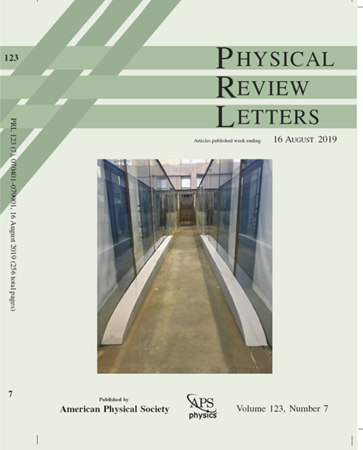Atomic shuffling dominated mechanism for deformation twinning in magnesium.
IF 9
1区 物理与天体物理
Q1 PHYSICS, MULTIDISCIPLINARY
引用次数: 211
Abstract
Deformation twinning is often mediated by partial dislocation activities at the twin boundary. Using molecular dynamics simulations, we have uncovered a new mechanism for the most commonly observed {1012}<101 1> deformation twinning in Mg and other hexagonal close-packed metals. Here the twin growth involves no definable dislocations at the twin boundary, and the twin orientational relationship can be established by local atomic shuffling, directly constructing the twin lattice from the parent lattice.
镁中原子洗牌为主的变形孪晶机制。
变形孪晶通常是由孪晶界的部分位错活动介导的。利用分子动力学模拟,我们发现了Mg和其他六方密排金属中最常见的{1012}变形孪晶的新机制。在这里,孪晶生长不涉及孪晶边界处可定义的位错,孪晶取向关系可以通过局部原子变换来建立,直接从母晶格构造孪晶晶格。
本文章由计算机程序翻译,如有差异,请以英文原文为准。
求助全文
约1分钟内获得全文
求助全文
来源期刊

Physical review letters
物理-物理:综合
CiteScore
16.50
自引率
7.00%
发文量
2673
审稿时长
2.2 months
期刊介绍:
Physical review letters(PRL)covers the full range of applied, fundamental, and interdisciplinary physics research topics:
General physics, including statistical and quantum mechanics and quantum information
Gravitation, astrophysics, and cosmology
Elementary particles and fields
Nuclear physics
Atomic, molecular, and optical physics
Nonlinear dynamics, fluid dynamics, and classical optics
Plasma and beam physics
Condensed matter and materials physics
Polymers, soft matter, biological, climate and interdisciplinary physics, including networks
 求助内容:
求助内容: 应助结果提醒方式:
应助结果提醒方式:


